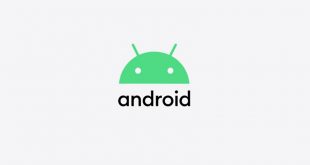This week was an eventful week in the tech community, much like the whole month of July actually. Seems like summer makes brains boil to a higher degree, developers and manufacturers putting out products that simply amaze enthusiasts. The weekly digest sums up some of the news you might not have seen in your feeds yet or overlooked it.
The Pirate Bay has launched a mobile version of the site, in spite of the public scrutiny from various governments. Users will simply be redirected from the original site to the Mobile Bay when accessing Pirate Bay from their phones or tablets. The Pirate Bay team plans to improve their services, too, by adding sections of Music and Movies, offering personalized RSS feeds and plan to use multiple domain names so that they can never get completely shut down.
The Chrome 37 beta has been released on Thursday for Android users, promising simpler sign-in protocols, improved performance and new material design. Users will not have to sign into each account in Chrome, rather Chrome will automatically sign users in, avoiding he hassle of typing tens of passwords a day. Bugs and performance issues have been fixed, but it is still just beta.
Bose, the audio equipment company, has filed a lawsuit against Apple’s Beats over a noise-canceling technology patent. Beats had been bought in May by Apple for $3 billion, in its entirety, Apple taking over headphone design and engineering. Apple should just come up with a new, improved design.
On Tuesday, we found out that robots will begin conducting National Security Clearance interviews, thanks to the National Center for Credibility Assessment. The NCCA are developing an on screen avatar interview system, turning the process of assessment into a less time-consuming and costly affair. The avatars would bypass prejudice, racism and culture bias, and objectively assess their interviewee.
Google has decided to dabble with the human body by gathering as diverse data it can from volunteer subjects in order to identify biomarkers that can explain certain people’s predisposition to certain diseases and affliction that can be lethal such as cancer, hepatitis and heart disease. The Baseline Study, as it has been dubbed by its chief scientist Dr. Andrew Conrad of Google X aims at creating an image of the perfectly healthy human for reference in identifying aforementioned biomarkers.
South Korean baseball fans have been surprised with Fanbots (it’s hilarious) replacing them if they are unable to attend a ballgame. These Fanbots receive messages from those who couldn’t make it and transmit them on a screen replacing the bots’ faces. The Hanwah Eagles have installed three rows of said Fanbots to cheer them on during games from the field. These bots can beam videos, messages, encouraging group cheering at the same time. The profiles customers use on the Fanbots are customizable and can be accessed from any device.
Google Glass got banned from San Diego Comic-Con screenings this week, even though legislation concerning wearables is still in the making. Despite that issue, Google Glass still works as a recording device, so there’s wasn’t too much outrage around the matter, because illegally recording at a screening is piracy, no matter the recording device. Some say that the ban limits the use of Google Glass in different social media areas, which might be a plausible concern, but we’ll have to wait and see what happens when Google Glass becomes widely available.
 Load the Game Video Games, Reviews, Game News, Game Reviews & Game Video Trailers
Load the Game Video Games, Reviews, Game News, Game Reviews & Game Video Trailers


